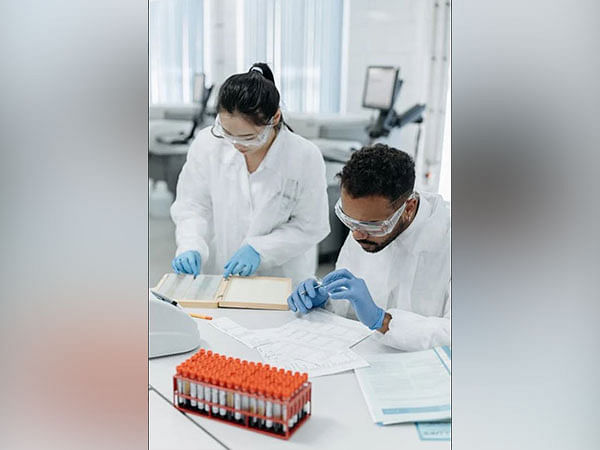Munich [Germany], November 29 (ANI): Researchers revealed how two proteins reduce scar formation in the brain, boosting tissue’s ability to recover.
Whereas cells in most endogenous tissues renew themselves on a regular basis, the number of nerve cells in the human brain and spinal cord remains constant. Although adult mammalian brains can regenerate nerve cells, as LMU scientist Professor Magdalena Gotz previously demonstrated, immature neurons in brain damage patients are unable to integrate into existing neural networks and survive outside of two specific locations of the brain. This appears to be related to glial cells, which create the brain’s supporting tissue. Microglia, in particular, cause inflammation and scarring, which segregate the wounded spot from the healthy brain but, in the long term, inhibit appropriate incorporation of new neurons into the circuits. It was previously unknown how the body regulates such systems.
Now a team led by LMU cell biologist Prof. Jovica Ninkovic has demonstrated in Nature Neuroscience that reducing the reactivity of microglia is crucial to preventing chronic inflammations and tissue scars and thus to improving regeneration capability.
How CNS injuries heal in zebrafish
In contrast to mammals, the central nervous system (CNS) of zebrafish has exceptional regenerative powers. In the case of injury, neural stem cells generate long-lived neurons, among other responses. Furthermore, CNS injuries prompt merely transitory reactivity of glial cells in zebrafish, which facilitates the integration of nerve cells into injured regions of the tissue. “The idea was to tease out the differences between zebrafish and mammals so as to understand which signaling pathways in the human brain inhibit regeneration – and how we might be able to intervene,” says Ninkovic.
The scientists deliberately inflicted CNS lesions in zebrafish, prompting the activation of microglia. At the same time, the researchers found an accumulation of lipid droplets and TDP-43 condensates in the lesions. To date, the protein TDP-43 has been primarily associated with neurodegenerative diseases.
Granulin also played an important role in the zebrafish model. This protein contributed to the removal of the lipid droplets and TDP-43 condensates, whereupon the microglia transitioned from their activated to their resting form. The unscarred regeneration of the injury was the outcome. Zebrafish with experimentally induced granulin deficiency, by contrast, exhibited poor regeneration of the injury similar to what we see in mammals. “We suspect therefore that granulin plays an important role in the regeneration of nerves in zebrafish,” says Ninkovic.
From basic research to application
To further pursue the comparison between humans and zebrafish, Ninkovic’s team investigated material from patients who had died of brain injuries. Here, too, there was a correlation between the extent of microglia activation and the accumulation of lipid droplets and TDP-43 condensates. The corresponding signaling pathways in human tissue were therefore comparable with those in zebrafish.
The LMU researcher sees “potential for novel therapeutic applications in humans.” As the next step, he is planning to investigate whether known low-molecular-weight compounds are suitable for inhibiting signaling pathways of microglia activation, thereby promoting the healing of neural lesions. Zebrafish models will be used again in this pre-clinical phase. (ANI)
This report is auto-generated from ANI news service. ThePrint holds no responsibility for its content.



